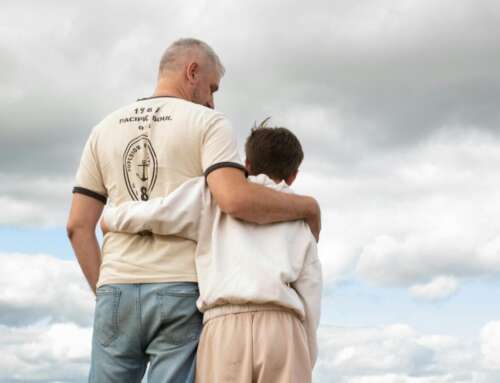 Dolly tackles binge drinking, abusive relationships and cyber attacks
Dolly tackles binge drinking, abusive relationships and cyber attacks
Melinda Tankard Reist
Sometimes I wonder if one girl’s mag gets wind of what another is up to and copies it. In this case it’s a good thing, with Dolly also running a feature on binge drinking. I commended Girlfriend for a strong piece on “liquid poison” also this month. What is less understandable is why it Dolly has assigned the piece to the ‘Sealed Section’. I see no rationale for this. (Girlfriend did the same thing awhile back with a special feature on mental illness which I questioned here ). Let’s face it, the sealed section is pretty useless anyway (a simple tear reveals the contents). But what is being implied here? Why doesn’t the piece belong in the body of the magazine with the rest of the ‘open content’?
The piece opens with the story of ‘Jen’, 16, who lost control after consuming vodka at a party and regretted her behaviour. Research shows 40% of girls 14-19 drink at levels which put them at risk of alcohol-related harm, those aged 15-24 account for 52% all alcohol related serious injuries and one in two 15-17 will regret something they did when drunk. “Binge drinking’s not only bad for your health, but it can seriously impact your wellbeing and relationships”, says Dolly. More than two standard drinks is enough to start physical damage to organs. Professor Gordian Fulde, Director of the Emergency Department, Sydney Hospital, says: “Usually the teenage girl who comes in will be vomiting and dehydrated so we’ll have to hook them up to a drip for fluid transfusions…Sometimes we’ll have unconscious patients who’ve fallen when intoxicated. We’ll cut their clothes off to do full body checks so we don’t miss a life-threatening injury…It’s often very distressing once they’ve sobered up and can’t remember what happened.” Long term effects are listed: alcohol dependence, physical health problems, mental health problems and unsafe situations e.g unprotected or unwanted sex. Girls are given tips for resisting peer pressure – say you’ve already had one, don’t feel pressured to give in – “true friends respect your decisions – swap the alcohol for your drink of choice, find other ways to beat party nerves. Support is offered through Reach Out.com.au and Alcohol & Drug Information Service (1800422599).
Two more important contributions this issue. ‘Relationships that hurt’ helps girls recognise dangerous and harmful relationships with boys who are jealous and controlling. Studies show teen girls are at greatest risk of entering abusive relationships – more than any women in other age groups. Many don’t recognise possessive behaviour as a red flag. “Jealousy is not the sign of love that girls often think it is,” says Carmen Garrett a social worker at Headspace. “When it leads to a boy trying to control your life- who you speak to, where you go – that’s serious.”
Megan at first thought the constant surveillance of her boyfriend was “proof he loved me”. She became withdrawn, her social life suffered, she lost her friends, and quit sport because her boyfriend hated her playing with boys on the team. Ella’s boyfriend, who she had kept secret for a year, started pressuring her for sex. “I wasn’t ready. But he kept threatening to tell my parents we’d done all this sexual stuff, even if we hadn’t,” she says. She gave in to the pressure out of fear and because she didn’t want to lose him. Melissa was pressured by her boyfriend to lose weight, telling her she was “too fat” and he would find someone else. “All I could think about was losing weight to make him like me again,” she says.
Kids Helpline psychologist Dr Angela Maguire says: “Your body is yours – no one has the right to make you do anything you don’t want to. Unfortunately many teens still think it’s the girl’s job to keep the guy happy…Girls in abusive relationships feel constantly fearful, worthless and overwhelmed”. Girls can suffer headaches, back and stomach pain as well as depression, anxiety and post-traumatic stress disorder. A list of warning signs to watch for is provided and girls are given steps to help them leave abusive relationships: remind yourself the abuse isn’t your fault; keep a diary of instances of abuse and save nasty tests and emails in case evidence is ever required; let family and friends know you feel unhappy and scared around him and seek professional counselling to help with a plan for breaking up.
The third significant article this issue is ‘When Bullying Goes Digital’, covering cyberbullying attacks and how to protect yourself. Research shows both victims and perpetrators of cyberbullying are more like to binge drink, face suspension from school, suffer depression and self harm. The article looks at the new online danger zone – ‘ask.fm’ where a friend may post a picture of herself and another girl and asked ‘How do we look?’ This is met with a flood of anonymous comments -there’s no privacy settings or reporting system- along the lines of “ugly” and fat” Several teens have taken their lives recently after being the victims of negative comments. Readers are advised to avoid these types of sites at all costs. Strategies are suggested: don’t respond, never send/post anything you wouldn’t want friends or the rest of the world to see; put FB settings on “notify for tagging pics”; be familiar with the privacy settings on social media sites you use (I would add ‘And use them!’), don’t engage in sexting; don’t accept friend requests from someone you’ve never met; never post personal information; limit time online if being targeted; save evidence of bullying; change passwords regularly.
‘Let Dolly Pimp your Formal’ is essentially two page advertising spread. I’ve pointed this out before – what’s with the sex industry inspired language for a formal? (or anything in a girls mag?). A page on formal fashion features a dress priced at $299 and other dresses closer to $200. There is only one under $100. Then there are the killer stiletto heels for the girls, costing up to $165. Dolly tells its readers “Formal time means ‘notice me’ dresses and pretty shoes to match.” Too bad if you can’t dance in them. Unlike Girlfriend’s piece on formals, there’s no tips for keeping to a budget. And none of the pressures on girls leading up to their formal are addressed.
Fortunately in the ‘Meet the teen-preneurs’ feature there’s not a stiletto to be seen. Outside school these three young women are self-employed and making money. Sarah Wheeler, 16, has her own photography business, Alina Paul, 16, set up her own tutoring business and Tayla Plunkett, 17, is a beauty vlogger.
‘How to be an ace negotiator’ explains that negotiation is a great skill and it’s good to start learning it early. Counsellor and ‘teen coach’ (haven’t heard of one of those before) Diane McGeachy, says: “Good negotiators are more likely to be successful in their careers, achieve their goals and have satisfying relationships. Girls are given trips to how to negotiate – at school, for example with essay deadlines, at work, with getting time off or a pay increase (“Prove your worth and your boss will hopefully realise it’s in their best interest to keep you happy”) and at home – “…have a mental list of
recent examples that prove your maturity and trustworthiness, Collate the evidence of what you’ve been doing that demonstrates your responsibility”, says McGeachy. Also pick the right time to negotiate, let go of more minor issues and only go into negotiations over what is really important – be open to compromise.
Troubling though is Dolly’s craze for The Janoskians, who deserve zero attention from anyone. I mentioned them in my review of the last issue. Their pranks include public masturbation and harassing mothers with babies.
Dr Ramesh Manocha, Founding Director of Generation Next and editor of this blog, will be pleased to know there is a page on how to meditate. Anything which helps bring calm to girl’s lives and reduces anxiety is to be welcomed.







Leave A Comment